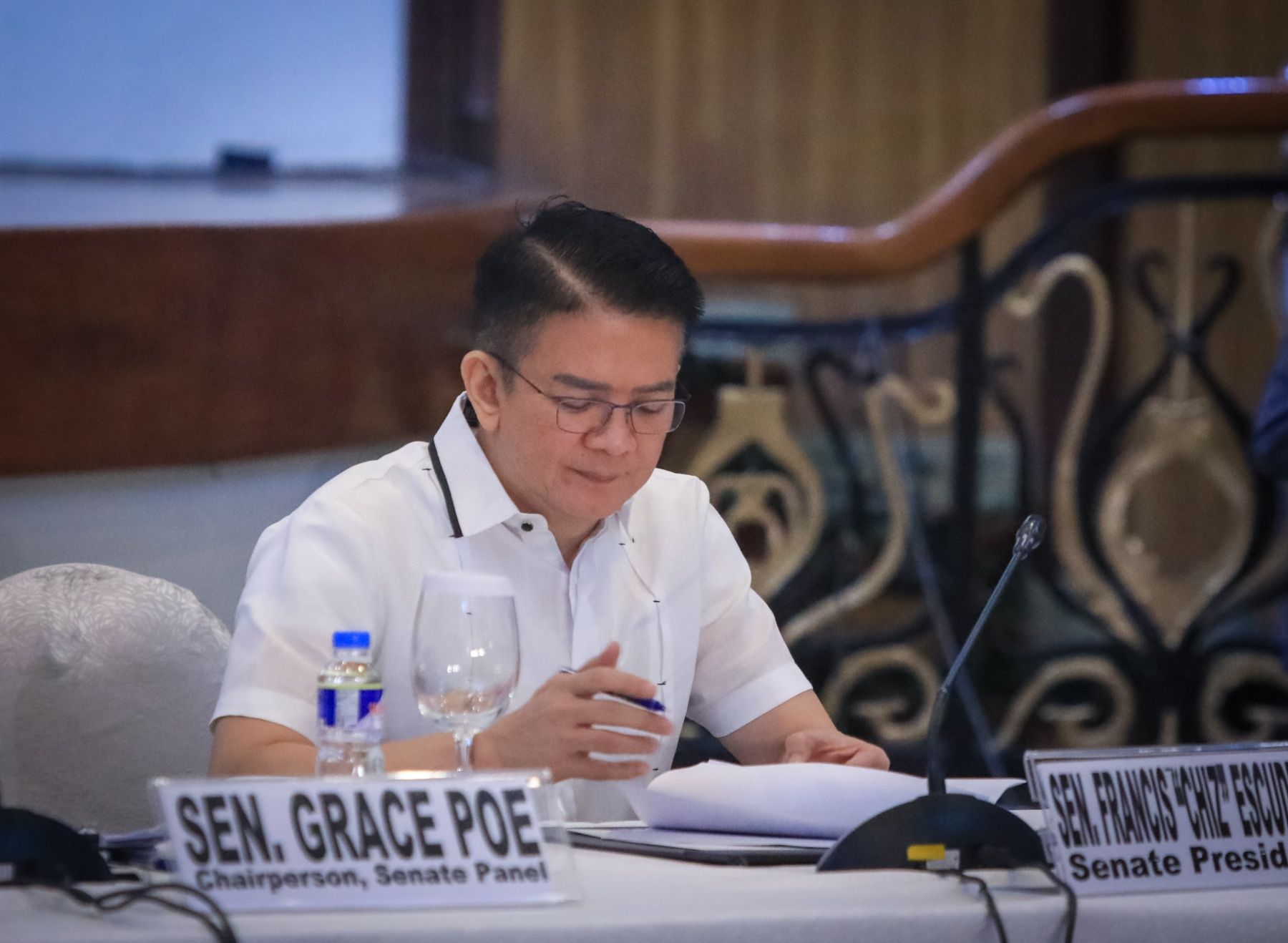2025 national budget resulted from true collaborative process, says Escudero
At A Glance
- Senate President Francis "Chiz" Escudero has hailed the signing of the 2025 General Appropriations Act (GAA) or the national budget as a product of a true collaborative process.
 Senate President Francis “Chiz” Escudero
Senate President Francis “Chiz” Escudero
Senate President Francis “Chiz” Escudero has hailed the signing of the 2025 General Appropriations Act (GAA) or the national budget as a product of a true collaborative process.
Escudero personally witnessed on Monday, Dec. 30 the signing of the P6.352-trillion budget measure into Malacañang. Next year’s outlay is the biggest in the country’s history.
While the signing took longer than expected, Escudero emphasized that the thorough review of the 2025 GAA by President Marcos and his economic team was part of the normal budget process.
“The GAA is not only the most important legislation, but also the longest and most complicated bill that Congress is expected to pass every year. It should therefore no longer come as a surprise that the process is more prolonged and controversial compared to other bills and laws,” Escudero said.
“What is important is that the 2025 GAA was signed before the year ended and the country avoided starting the new year on a reenacted budget,” he added.
As stated by the Chief Executive, the inputs of the people were taken into account in his review of the national budget, which Escudero noted as “a positive sign that the President listens and that democracy is well and alive in the country.".
“If governance is defined as ‘allocating scarce resources’ then I am truly elated and encouraged that the people and all the branches of government took an active part in governance and governing of our country.
"This is precisely what democracy means, and it shows that we have a strong one where the system of checks and balances is alive and well,” explained Escudero.
According to Escudero, while each chamber of Congress would have wanted to keep their respective initiatives and amendments, the process involved a lot of “give and take", considering the reality that there are unlimited needs and finite resources.
“No one branch reigns supreme and dictates over the other. The expression of divergent and different opinions, views and suggestions regarding the GAA are all well taken and are part and parcel of the process,” Escudero said.
“Ultimately, however, regardless of whose side prevails, we must all come together, wiser, better, and stronger to face the challenges that lie ahead in the coming year as one nation and one people,” the Senate chief said.
Senator Grace Poe, chairperson of Senate Committee on Finance, similarly welcomed President Marcos' signing of the 2025 GAA, which she described as a ey moment of collaboration between the executive and legislative branches.
With this, Poe said the country's officials were "united in ensuring that government operations remain seamless as we enter the new year".
"This new budget —rather than a mere reenactment— signals an alignment of fiscal priorities, reflecting a unified commitment to driving sustainable national development," she said.
Poe went on to cite the controversial aspects of the budget that were later resolved by the lawmakers.
"The conditional implementation of the AKAP program highlights our collective responsibility to safeguard against misuse and duplication of benefits," she said, referring to the Ayuda para sa Kapos ang Kita Program.
"By refining its guidelines, we ensure that over four million low-income earners, including minimum-wage workers and those in the informal sector, continue to receive the support they need. Wealth transfer programs must always be subject to strict oversight, and through the President's convergence mandate, AKAP will be better positioned to serve as a genuine social safety net," Poe said.
"Further, the President’s veto of certain items in the unprogrammed appropriations underscores the importance of fiscal discipline. As with previous budgets, the Executive is right to withhold funds for projects with uncertain funding sources or lacking actionable plans. By removing the standby authority, the veto ensures that government spending is based on solid revenues, not speculative projections," she noted.
"Similarly, the veto on some DPWH (Department of Public Works and Highways) projects is a clear exercise of the President's authority as the chief architect of our nation’s infrastructure. It reiterates our commitment that every peso be spent only on shovel-ready, high-priority projects," she said.
"The assurances from both the economic team and the PhilHealth board that its surplus and reserve funds are more than sufficient to cover indirect contributors and enhance benefit packages align with Congress’ view that PhilHealth should first tap into its standby funds before requesting additional subsidies," Poe said.
"As the implementing body, the executive's support is critical in ensuring that PhilHealth leverages unused subsidies and member contributions accumulated over the years to strengthen the comprehensive and affordable healthcare program it was designed to provide," she said.
"Overall, I am confident that this year’s budget will not only prevent the misuse of public funds but also ensure that government spending remains responsible, sustainable, and in line with our fiscal priorities," the senator said.